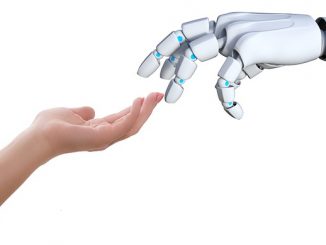China is making significant advancements in humanoid robotics, challenging industry leaders with innovative startups and affordable, high-performance robots. Here’s a look at some exciting developments in the field:
Unitree – an established Chinese robot manufacturer, has unveiled its G1 humanoid robot. With mass production on the horizon, the G1’s $16,000 price tag promises to make advanced robotics more accessible.
Equipped with impressive whole-body control, Unitree’s G1 is poised to revolutionize the market.
AGIBOT– AGIBOT, another Chinese company, recently introduced a family of five advanced humanoid robots designed for diverse applications, ranging from household tasks to industrial operations.
This impressive lineup highlights AGIBOT’s commitment to developing versatile solutions for various industries. Among these innovations is AGIBOT’s SkillHand, engineered for precision with a future-oriented, multi-DOF (Degrees of Freedom) design.
SkillHand features 12 active and 5 passive degrees of freedom, all with built-in drives, and incorporates visual-based fingertip sensors. In robotics, “Degrees of Freedom” refers to the number of independent movements a device or system can make, with each degree representing an axis of movement or rotation.
For instance, a robotic arm with 6 DOF can move in six distinct ways, such as up/down, left/right, forward/backward, and rotational movements around those axes.
Astribot – Another Chinese company making waves in robotics is Astribot. Their next-gen AI robot assistant, Astribot S1, a two-wheeled humanoid robot, has impressed audiences with its smooth, teleoperation-free performance. Astribot S1’s ability to execute human tasks at 1x speed underscores the company’s technical prowess.
These innovative companies and breakthrough robots highlight China’s growing influence in the global robotics market. By prioritizing accessibility and versatility, Chinese firms are driving the evolution of humanoid robotics and paving the way for a more automated future.
- Bulenox: Get 45% to 91% OFF ... Use Discount Code: UNO
- Risk Our Money Not Yours | Get 50% to 90% OFF ... Use Discount Code: MMBVBKSM
Disclaimer: This page contains affiliate links. If you choose to make a purchase after clicking a link, we may receive a commission at no additional cost to you. Thank you for your support!




Leave a Reply